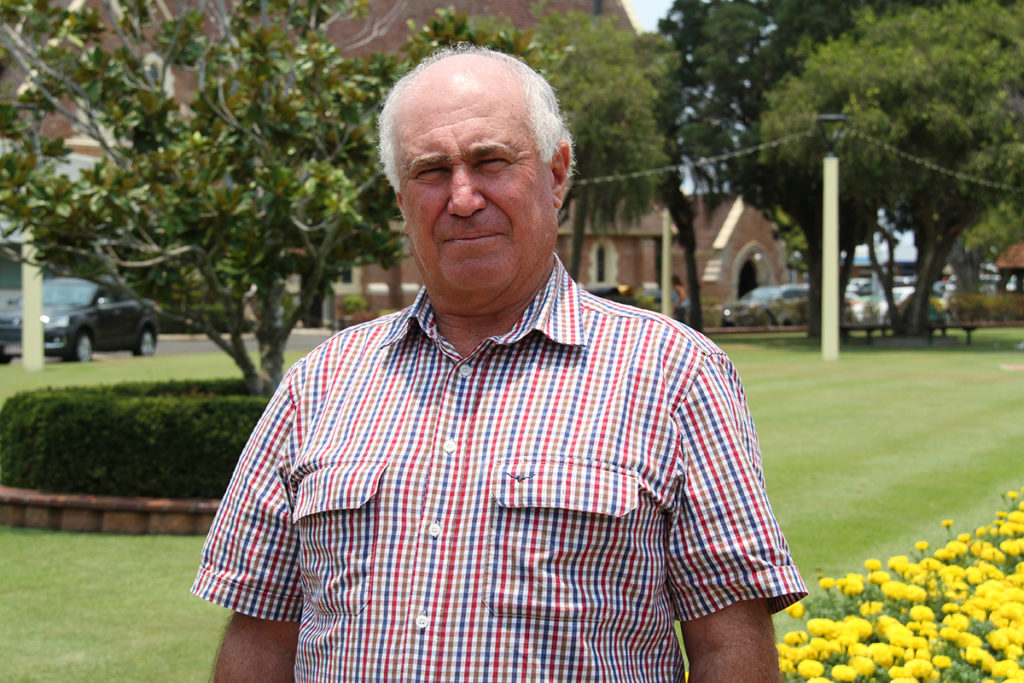
Agriculture industry representatives and Council have commissioned an independent study to assess the economic costs of inaction in failing to reinstate Paradise Dam to its full capacity.
The study, to be undertaken by independent economists, aims to define the value of irrigation water to the region’s economy to underpin calls to restore the entire nominal allocation of Paradise Dam.
Agriculture is the largest contributor to economic activity in the Bundaberg Region economy, representing 13.8% of ‘value added’ to the region’s economy – compared to 3.4% for Queensland.
In 2018/19 this represented $482.5 million of local value that was retained by local farming operations to pay wages or purchase other local inputs such as machinery and equipment.
Mayor Jack Dempsey said Council was coordinating the study which was due to be completed in February.
“This independent ‘economic costs inaction study’ is about getting on the front foot, it’s not an option to simply sit back and wait for someone else to decide our fate,” Mayor Dempsey said.
“Agriculture plays such a critical role in our economy and as a region we need to understand exactly what it will mean if water security is not reinstated.
“It’s not just about what we have now, it’s the future opportunities that could be lost to the region due to a lack of water security.
“Few regions in Australia have a competitive edge like we do to generate agricultural produce, we should not let this edge go by allowing the dam’s capacity to not be reinstated.
“This study will provide us with a platform to advocate for the reinstatement of the dam or an alternative solution that would provide the same level of water security.”
Economic study supported by industry
Local sugarcane farmer Mark Mammino is part of a group of industry advocates driving the study, representing the Isis Canegrowers and the Bundaberg Irrigation Advisory Committee.
He said local irrigators needed to be assured of long-term water security and reliability, especially those who had invested in tree crops like macadamias and avocados.
“They cannot afford to see those crops die because it’s a heavy investment cost to have those orchards established,” Mark said.
“If an orchard loses a tree crop they’ve lost their significant investment that’s already been put in and it’s hard to recover.”
He said the growth of the economy could be severely impacted if the dam’s capacity is not reinstated.
“I think it would be significant not just to agriculture but the impact to the whole economy of the Bundaberg Region.”
Mark said collaboration had been strong between industry groups on this matter, with Isis Canegrowers meeting regularly with Bundaberg Canegrowers and Bundaberg Fruit and Vegetable Growers.
“As a combined three groups we’ve been meeting pretty regularly.
“The aim is to be able to convince government and Sunwater that we definitely need Paradise Dam.
“If they have to lower it, it definitely needs to be reinstated.
“There’s forecasts of announced allocations going forward if there’s minimal inflows into Paradise Dam.
“[We are] getting quotes of announced allocations of 16 per cent which, if I was a tree cropper, would be pretty drastic.”
Bundaberg Canegrowers manager Dale Holliss said given the amount of the region’s gross product which comes from agriculture, it was more reliant on the industry than any other area in Queensland.
“So the state average is about 3 per cent reliant on agriculture and when you go to other high agricultural areas they have significant mining underpinning their economy,” Dale said.
“We don’t. So that’s why this is critical.”
Mayor Dempsey said the community could show its support for the reinstatement of the region’s water security by signing his petition, available online or at any Council Service Centre.
The economic study is being coordinated by Bundaberg Regional Council and has been supported by Wide Bay Burnett Regional Organisation of Councils, Regional Development Australia, Bundaberg Fruit and Vegetable Growers, Macadamia Society of Australia, Bundaberg Canegrowers, Isis Canegrowers and local agricultural representatives.
- Related story: Fruit and veg growers back Paradise Dam petition





Why lower the dam? Put a rock wall in front to support it, problem solved. We need this water for the entire area’s future.
Sounds like they have already made up their minds. You would think that it would be prudent to wait for the outcome of the Independent Paradise Dam Commission of Inquiry which will investigate the structural integrity of the dam. To me all it sounds like is a precluded report to smear the Labor State Gov’t that ordered the lowering of the dam water in the first place.
Thank heavens Marc isn’t a dam engineer, best left up to the professionals or the entire area’s future might end up being washed out to sea.